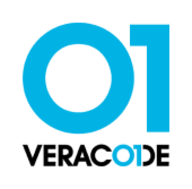

Veracode and Black Duck are leading products in application security testing. Veracode stands out by providing a well-integrated solution with developer tools and a flexible deployment model. Black Duck excels in open-source vulnerability detection and offers extensive compliance and license management capabilities.
Features: Veracode offers static, dynamic, and manual scanning capabilities and provides APIs for DevOps integration, excellent scalability, and a low false positive rate. Black Duck specializes in open-source software scanning and includes rigorous license management along with potent vulnerability detection for third-party components, supporting various programming languages.
Room for Improvement: Veracode users often report issues with false positives, slower scanning speeds, and complex API integrations. They also express a need for improved UI consistency and reporting enhancements. Black Duck is noted for its high cost and requires better integration with Coverity, along with expanding support for dynamic testing. Both platforms need UI enhancements.
Ease of Deployment and Customer Service: Veracode is adept with public, private, and hybrid cloud deployment, though its feature richness may complicate setup. Its customer service is praised for expertise, albeit occasionally slow. Black Duck supports on-premises and private cloud setups, often deemed complex, with customer service perceived as less responsive and documentation lacking in user-friendliness.
Pricing and ROI: Veracode is perceived as expensive, with a pricing model tailored to specific needs, offering ROI through enhanced security compliance and reduced penetration testing costs. Black Duck's cost is higher, which can outweigh its benefits for some, but its thorough open-source scanning provides value through compliance management, perceived as beneficial despite its high price.


Organizations use Black Duck for compliance, internal audits, license management, and security, scanning software to identify vulnerabilities, non-compliant code, and dependencies in open-source projects.
Black Duck integrates into CI/CD pipelines and DevSecOps processes, helping multiple industries detect and handle risks associated with open-source usage. Users leverage it for source and binary analysis to ensure security and compliance before software release. Automatic component analysis, effective vulnerability scanning, and a comprehensive knowledge base are some of its valuable features. Despite needing improvements in scanning speed, UI, and documentation, Black Duck remains crucial for ensuring open-source security and compliance.
What are Black Duck's most important features?
What benefits or ROI should users look for in reviews?
Black Duck is implemented by industries ranging from finance to healthcare, addressing security and compliance in open-source usage. Financial institutions employ it to manage license risks and ensure audit readiness. Healthcare organizations use it to comply with stringent data protection regulations, ensuring patient data security and privacy. Tech companies integrate Black Duck within CI/CD pipelines to maintain the security and compliance of software products before release. Its deployment varies, tailored to meet the specific risk management and compliance needs dictated by each sector's regulatory environment.
Veracode is a leading provider of application security solutions, offering tools to identify, mitigate, and prevent vulnerabilities across the software development lifecycle. Its cloud-based platform integrates security into DevOps workflows, helping organizations ensure that their code remains secure and compliant with industry standards.
Veracode supports multiple application security testing types, including static analysis (SAST), dynamic analysis (DAST), software composition analysis (SCA), and manual penetration testing. These tools are designed to help developers detect vulnerabilities early in development while maintaining speed in deployment. Veracode also emphasizes scalability, offering features for enterprises that manage a large number of applications across different teams. Its robust reporting and analytics capabilities allow organizations to continuously monitor their security posture and track progress toward remediation.
What are the key features of Veracode?
What benefits should users consider in Veracode reviews?
Veracode is widely adopted in industries like finance, healthcare, and government, where compliance and security are critical. It helps these organizations maintain strict security standards while enabling rapid development through its integration with Agile and DevOps methodologies.
Veracode helps businesses secure their applications efficiently, ensuring they can deliver safe and compliant software at scale.
We monitor all Software Composition Analysis (SCA) reviews to prevent fraudulent reviews and keep review quality high. We do not post reviews by company employees or direct competitors. We validate each review for authenticity via cross-reference with LinkedIn, and personal follow-up with the reviewer when necessary.